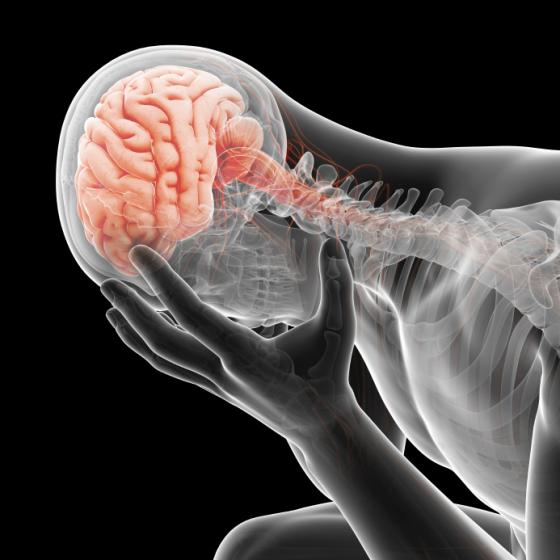How does depression affect the brain?
Depression is a mental health condition that extends beyond its emotional toll, impacting various facets of an individual’s life. One crucial aspect of study involves comprehending how depression influences the brain.
This article seeks to unravel the neurobiological consequences of depression, illuminating the intricate nexus between depressive symptoms and brain activity.
By plunging into the fundamental mechanisms, we can gain a deeper comprehension of the physiological shifts transpiring in the brain, culminating in the emergence and progression of depression.
Neurotransmitter Imbalance
A fundamental player implicated in depression is the imbalance of neurotransmitters, chemical envoys facilitating communication among brain cells.
Serotonin, norepinephrine, and dopamine stand among the neurotransmitters often linked to depression. Reduced serotonin levels, in particular, have been tethered to depressive symptoms, as serotonin is pivotal in regulating mood, appetite, and sleep patterns.
Structural Changes
Depression has been found to alter the structure of specific brain regions. Studies utilizing neuroimaging techniques like magnetic resonance imaging (MRI) have pinpointed structural modifications in regions like the prefrontal cortex, hippocampus, and amygdala.
The prefrontal cortex, responsible for executive functions such as emotional regulation and decision-making, might experience diminished volume in those grappling with depression.
This shortfall can contribute to challenges in managing emotions and hindered cognitive processing.
The hippocampus, tasked with memory and emotional regulation, could also undergo structural transformations in depression.
Reduced hippocampal volume has been correlated with depressive symptoms, potentially impacting memory and the capacity to form new memories.
The amygdala, governing emotion processing, might display amplified activity and augmented connectivity in depression.
This heightened state can induce an exaggerated emotional response, contributing to the potent negative feelings experienced by individuals contending with depression.
Neuroplasticity and Depression
Neuroplasticity, the brain’s adaptive capacity, constitutes another domain impacted by depression.
Chronic stress and depression have the potential to disrupt neuroplasticity, precipitating diminished synaptic connections and compromised communication between brain cells.
Research indicates that depression aligns with reduced neuroplasticity in the hippocampus and prefrontal cortex.
This interference can hinder the brain’s capacity to acclimate to novel scenarios, manage emotions, and forge fresh connections, thus perpetuating depressive symptoms.
Neuroinflammation
Emerging research points to a plausible connection between depression and neuroinflammation, the activation of the brain’s immune system. Inflammation can arise from chronic stress, environmental factors, or genetic predispositions.
Elevated levels of pro-inflammatory cytokines, molecules instrumental in immune responses, have been documented in individuals affected by depression.
Neuroinflammation can wield adverse repercussions on brain function, unsettling neurotransmitter equilibrium, and impeding neuronal communication.
Additionally, it can exacerbate the structural changes observed in depression, thus exacerbating depressive symptoms.
Impact on Reward Circuitry
Depression can disrupt the brain’s reward circuitry, fostering anhedonia, the incapacity to derive pleasure. The reward circuitry encompasses diverse brain regions, including the ventral striatum and prefrontal cortex.
In instances of depression, activation within the reward circuitry might diminish, yielding reduced motivation and diminished enjoyment from activities that were once gratifying.
This distortion of the reward system contributes to the foundational symptoms of depression and can potentially perpetuate a cycle of reduced engagement with pleasurable stimuli.
Grasping the neurobiological repercussions of depression is pivotal as it unearths the underlying mechanisms of the disorder.
However, it is crucial to recognize that the association between depression and the brain is intricate and multilayered, interwoven with an interplay of diverse biological, genetic, and environmental factors.
Hormonal Imbalances
Depression has been interlinked with aberrations in the endocrine system, giving rise to perturbations in hormone levels.
One hormone of distinct interest is cortisol, colloquially known as the “stress hormone.” Prolonged exposure to stress and chronic activation of the stress response can result in the destabilization of cortisol levels.
Elevated cortisol levels have been noted in individuals contending with depression, potentially impacting brain structures and neurotransmitter systems, thereby compounding depressive symptoms.
Sleep Disruptions
Depression frequently accompanies disturbances in sleep patterns. Irregular sleep habits, such as insomnia or excessive sleepiness, can exert an impact on brain operations.
Sleep assumes a pivotal role in memory consolidation, emotional regulation, and the restoration of brain functions. Disruptions in sleep can exacerbate depressive symptoms and contribute to the perpetuation of the disorder.
Effects on Cognitive Function
Depression can also influence cognitive processes, encompassing attention, concentration, and memory.
Those grappling with depression often encounter challenges in maintaining focus on tasks, making decisions, and recalling information.
These cognitive impediments can be linked to the structural and functional alterations within the prefrontal cortex, tasked with executive functions and cognitive control.
Impaired Stress Response
Chronic stress stands as a significant risk factor for depression. The hypothalamic-pituitary-adrenal (HPA) axis, governing the body’s stress response, can spiral into dysregulation in cases of depression.
Prolonged activation of the HPA axis and heightened release of cortisol can bring about changes in brain regions implicated in stress regulation, such as the hippocampus and amygdala. These shifts can sustain the stress response and amplify the persistence of depressive symptoms.
Conclusion
Depression exerts substantial ramifications on the brain, influencing neurotransmitters, brain structures, neuroplasticity, neuroinflammation, the reward circuitry, hormonal equilibrium, sleep patterns, and cognitive function.
Understanding these neurobiological implications augments our grasp of depression as a multifaceted disorder and informs the creation of targeted interventions and treatments.
Continued exploration in this sphere holds the potential to advance our comprehension of depression and enhance the lives of individuals ensnared by this debilitating condition.

